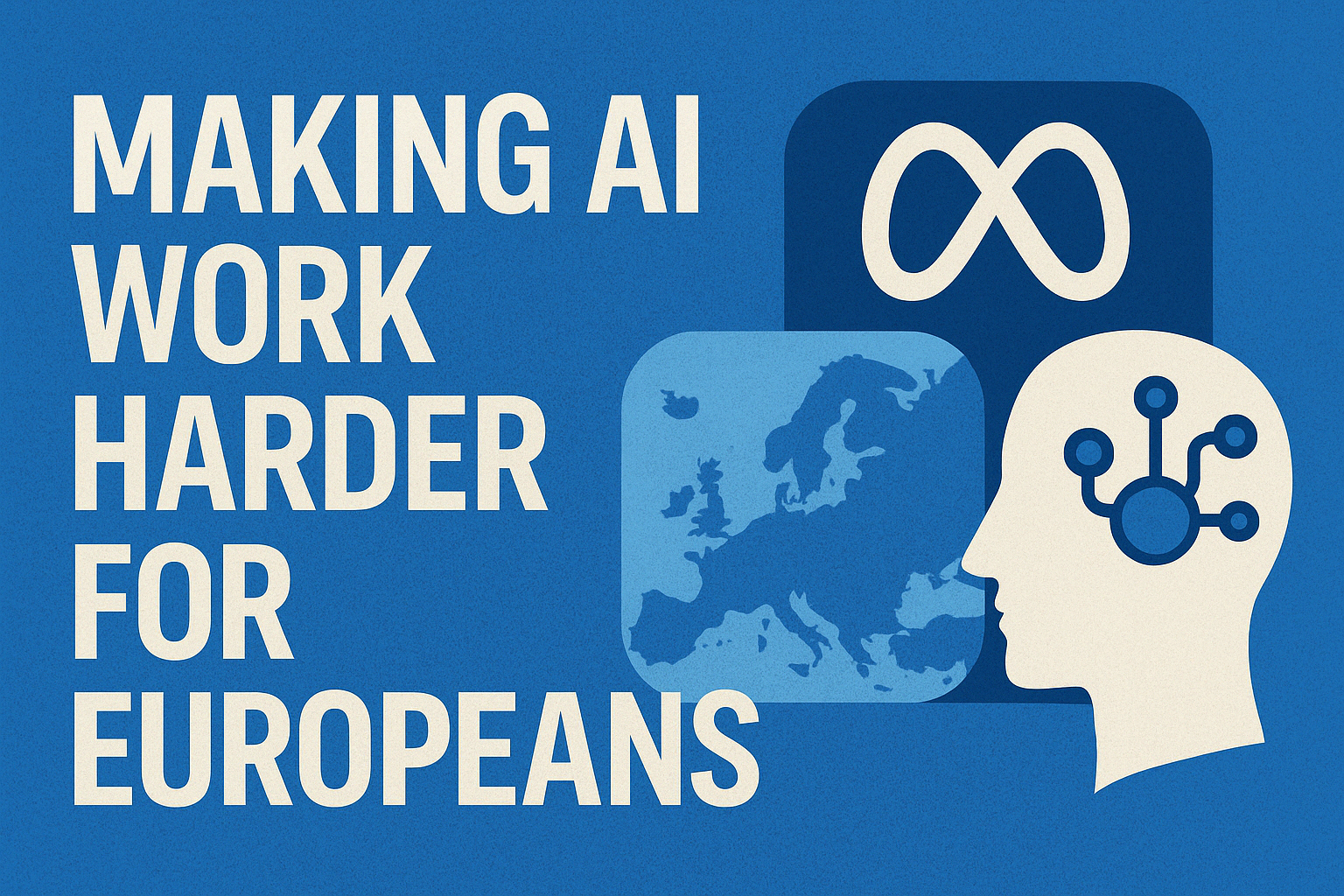Making AI Work Harder for Europeans—But On Whose Terms?
Meta recently announced that it will begin training its AI models using public posts and interactions from European users. According to Meta, this move is intended to create more culturally relevant and responsive generative AI for users across the EU. But beneath the surface of good intentions lies a deeper, more complex conversation about consent, cultural identity, and the invisible labor of users.
What’s Happening?
Starting this week, EU-based users will be notified that their public posts, comments, and interactions with Meta’s AI could be used to train its models. The company claims this will improve AI’s ability to understand European languages, dialects, and cultural nuance, especially as it rolls out more advanced multimodal features.
Users will have the right to object to this use of their data via a simple opt-out form—a step Meta insists is easy to find and use.
Key Details:
- Only public content shared by adults is included
- Private messages and content from users under 18 are excluded
- Objections can be filed anytime, and past objections will be honored
- Affects all Meta platforms: Facebook, Instagram, WhatsApp, Messenger
Why It Matters
Meta’s approach is positioned as respectful, transparent, and legally sound, especially after regulatory guidance from the European Data Protection Board (EDPB). However, ethical questions remain.
- Is public content really “fair game” for corporate AI training?
- Can AI truly “reflect” a culture without reinforcing stereotypes?
- Shouldn’t Europeans be compensated for training the very tools companies will profit from?
Cultural Relevance ≠ Cultural Consent
Meta wants its AI to understand European humor, sarcasm, and local idioms. But training AI on millions of individual expressions—without compensation—borders on extraction. While Meta’s move isn’t unique (Google and OpenAI already do this), its commitment to transparency is being tested in real time.
Europeans aren’t just datasets—they’re contributors to digital culture. They deserve more than a polite email explaining why their content is valuable. They deserve meaningful participation in shaping the future of the tools that shape them.
What You Can Do
1. Read the Notification – Don’t skip it when it pops up.
2. Decide for Yourself – Whether or not you want your data used.
3. Stay Informed – AI policy evolves fast. Your rights depend on it.
4. Push for Better – Advocate for AI that's not just built for you, but with you.
Meta’s promise to “build AI for Europeans” could be a good thing—but only if it's done with transparency, integrity, and consent at the center.

